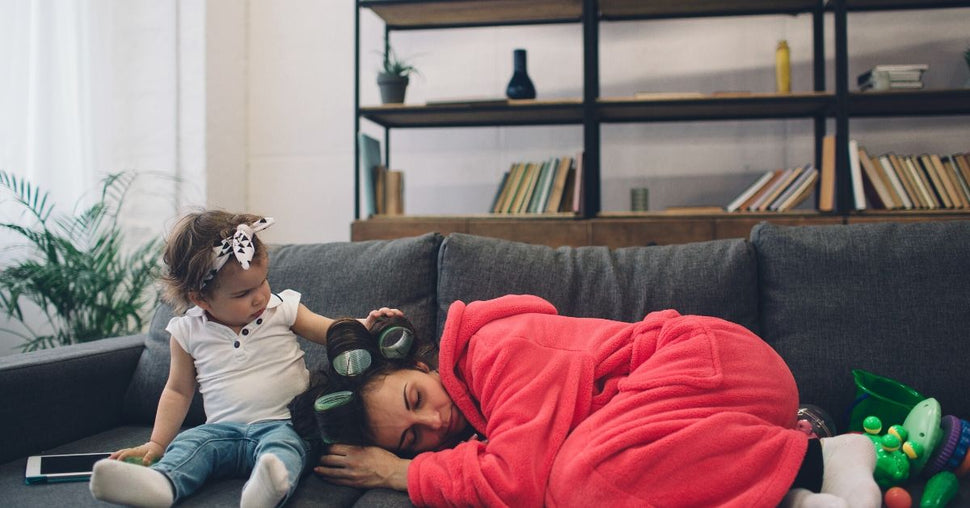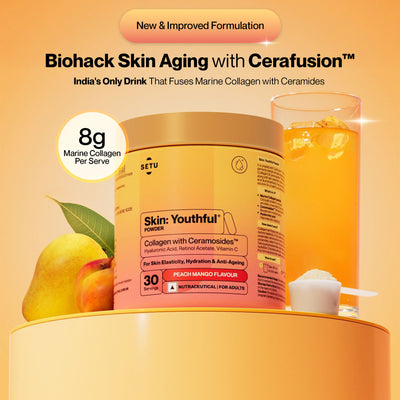Let’s Talk Postpartum Depression
01 Feb 2020
Becoming a parent is stressful and comes with a whirlwind of emotions, especially for the mother. From bliss and joy to fatigue and anxiety, motherhood can trigger a wide array of feelings. Although it is normal to suffer from mood swings after childbirth, if these feelings become severe and start to interfere with your daily life, you may be suffering from postpartum depression (PPD).
Sometimes, it will last for a few weeks, while in severe conditions, it can be more persistent. Dismissed as ‘baby blues’, more often than not, we tend to take postpartum depression lightly. The symptoms usually start within a couple of weeks from the delivery and can develop up to six months later .
Courtney Cox, who played Monica Geller on ‘Friends’, also experienced a delayed case of postpartum depression. “I went through a really hard time – not right after the baby, but when (Coco) turned six months. I couldn’t sleep,” the actress said. “My heart was racing. And I got really depressed. I went to the doctor and found out my hormones had been pummeled.”
The best way to diagnose and treat PPD is by visiting a trained healthcare professional, postpartum depression is not something to be taken lightly.
If you are sleep deprived and are looking for a solution, click here!
Symptoms Of Postpartum Depression

Although the symptoms vary from person to person, the usual tell-tale signs include feeling low or distant and withdrawn for a long period, changes in eating and sleeping habits, and anxiety. Lack of emotional bonding and attachment with the baby is another significant symptom.
Treatment For Postpartum Depression
PPD is treatable with proper care and management. The first step towards recovery is to recognize and acknowledge the symptoms. If you are experiencing the signs of PPD, it is necessary to talk to your doctor and seek professional help. Postpartum depression can be isolating, therefore emotional and social support from family and friends can benefit you in many ways; it is important to talk about your feelings with your partner, family members and your loved ones. If you are comfortable, you can also be a part of support groups in which people can share their experiences and how they coped with the condition.
Don’t be embarrassed, you’re not alone and it is not your fault. In India, 22% of young mothers suffer from postpartum depression and asking for help is not something you should be ashamed about. Similarly, taking time out for yourself does not make you a selfish mother. Self-care can help you heal and be a better mother. Studies suggest that physical activity can ease the symptoms of PPD. A walk in the park or some yoga can do wonders in lifting your mood. So ask your partner or your family to care for your baby for a few hours while you work on yourself so that you can ensure good health for both of you.
Some mothers feel detached from their babies. The fact that they aren’t instantly filled with love at the sight of their baby can be challenging for many. In fact, actor Gwyneth Paltrow faced something similar after she gave birth to her son Moses in 2006.
“At my lowest, I was a robot. I just didn’t feel anything. I had no maternal instincts for him—it was awful. I couldn’t connect, and still, when I look at pictures of him at three months old, I don’t remember that time,” the actor revealed.
Mothers tend to beat themselves up over the lack of a strong motherly attachment. Working towards building an emotional bond with the baby helps improve their relationship and can help you feel more confident and in control.
How Can Family Help?

As family and friends, it can be difficult to see your loved one struggle with postpartum depression. More often than not, young mothers are ashamed to ask for help, which is why it is important to make them feel heard. The fear of being judged and of being labeled a bad mother is a primary deterrent for young mothers to open up about what they are going through.
Know someone who is suffering from postpartum depression? Here’s what you can do to help them.
Listen & Don’t Pass Judgments: Sometimes all we need is somebody to just listen, without offering solutions or trying to fix things. Moreover, the fear of being judged is often what stops mothers from talking about their feelings. Create a safe space and encourage her to talk about her feelings and struggles, because if the feelings bottled up, they may pave the way for suicidal thoughts and thoughts of harming themselves which can have tragic results.
Give Space & Emotional Support: Taking care of a baby is a full-time job and sometimes all a struggling mother needs is some time for herself. Self-doubt and guilt are common among young mothers. Acknowledging the effort that she is putting in and assuring her that it is okay to make mistakes can help alleviate the stress associated with her performance as a mother. Read up about the condition in more detail. Understand that feel sad and suffering PPD are two extremely different things that need to be handled in different ways.
Check-In On Them Regularly: With a baby on board, we often tend to neglect the mother. Check-in on her regularly, making sure she is well fed and rested. Offer help around the house. Bring over a meal or babysit, don’t wait for her to ask for help. More often than not, mothers suffering from postpartum depression don’t know what they need to make things better. Look after their physical and emotional health.
Celebrate Their Progress & Victories: A great way to show support is by acknowledging and celebrating all victories and progress, no matter how small. Recovery from postpartum depression can be daunting, but having someone to celebrate the progress with makes the battle easier. Empathy and support can go a long way!
Skin: Renew - Glutathione - Orange Flavour
- ₹1,996
- ₹1,996
-
₹2,600 - ( 23% OFF)
Categories
- Choosing a selection results in a full page refresh.
- Press the space key then arrow keys to make a selection.
this is the sidecart











